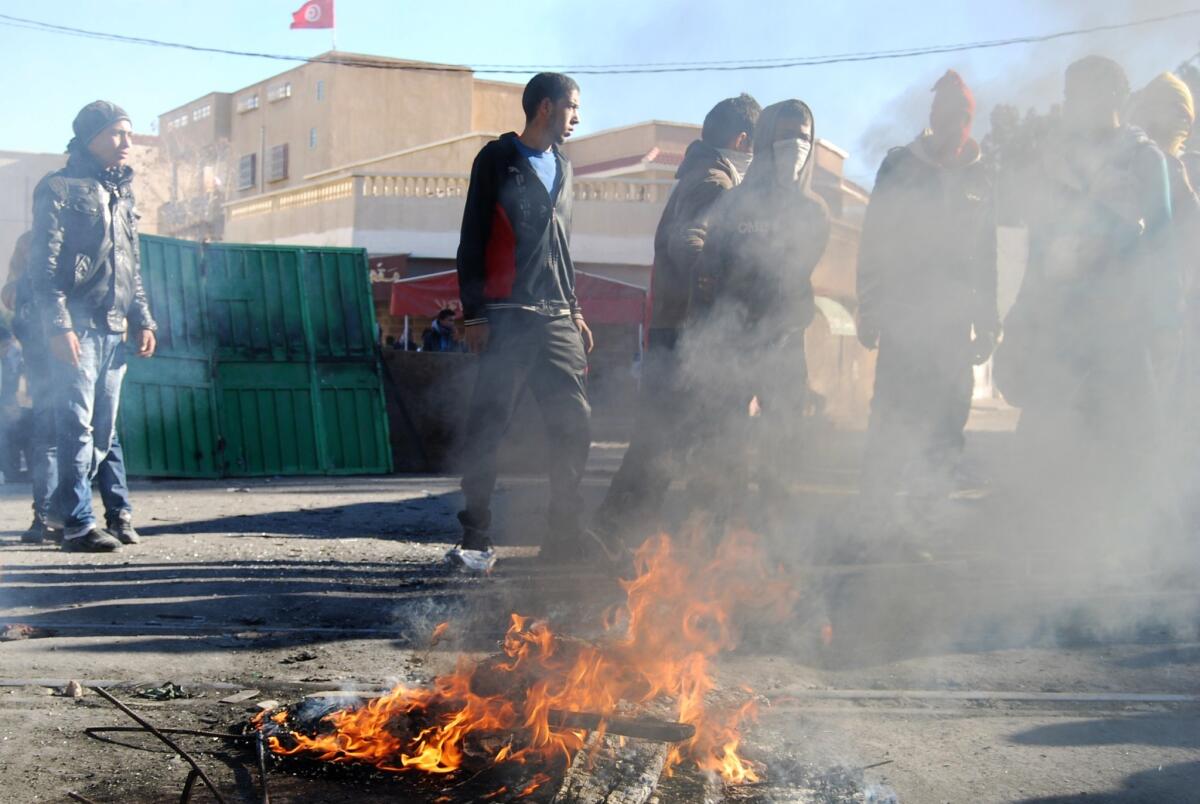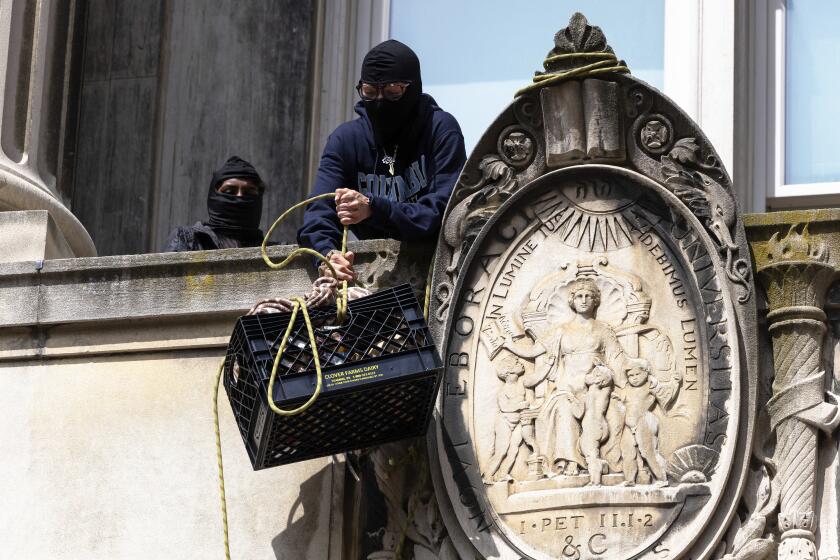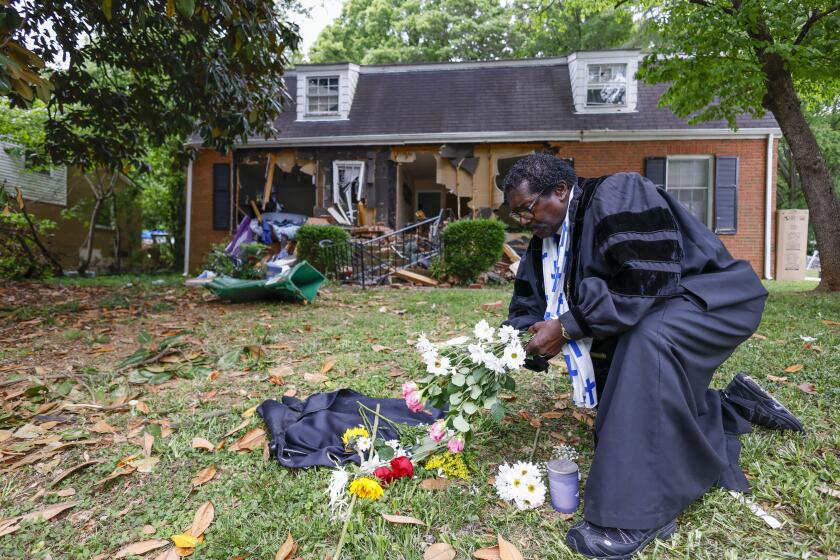Tunisian government steps down ahead of elections and amid protests

CAIRO -- Tunisia’s Islamist prime minister stepped down Thursday, upholding a pledge aimed at breaking a political stalemate and paving the way for new elections in the country where the Arab Spring began.
Tunisia is approaching the third anniversary of the overthrow of longtime despotic leader Zine al Abidine ben Ali, an uprising that triggered a series of regional revolts against longtime authoritarian leaders, including Egypt’s Hosni Mubarak.
Thursday’s resignation of the government, announced in a nationally televised news conference by Prime Minister Ali Larayedh, was in line with an earlier agreement between his Islamist Ennahda party, which holds a parliamentary majority, and secular opposition parties.
“We took on our responsibilities under very difficult conditions,” Larayedh said.
Last year, Tunisia was shaken by a pair of high-profile assassinations carried out by suspected Islamist militants, including the slaying of prominent politician Mohamed Brahmi in July. The country also has been roiled by months of unrest, with economic difficulties and high unemployment exacerbating social tensions.
The agreed-upon political blueprint calls for Larayedh and his Cabinet to be replaced by a technocratic administration that will assume stewardship until new elections later this year. A commission has been formed to oversee balloting on a new national charter, and an election date is to be set before Tuesday’s three-year anniversary of Ben Ali’s ouster.
In the meantime, though, strikes and demonstrations have broken out against the financial policies of the Ennahda-headed administration.
Days after lawmakers began voting on Tunisia’s first post-uprising constitution, what began as peaceful marches turned into confrontations with police. This week’s unrest has been centered in the towns of Thala and Kasserine, in the less developed interior region of western Tunisia.
According to the Tunisian state-run news agency TAP, two police officers were injured during violent protests in response to a recently announced hike in vehicular taxes. Thala’s police station was stormed by demonstrators who set a security vehicle ablaze.
Another police headquarters was ransacked and torched in the town of El Guettar in the impoverished central region, the part of the country where the self-immolation of a young street vendor was the spark for the uprising more than three years ago.
Marches protesting the marginalization of inner provinces coincided with calls for strikes by the powerful Tunisian General Labor Union, or UGTT, and the Regional Labor Union in four governorates. The UGTT on Wednesday said it rejected the proposed 2014 budget as hastily drafted and not responsive to public needs.
Meanwhile, another influential group called a strike of its own. The Assn. of Tunisian Magistrates is protesting what it calls undue Cabinet interference in judicial posts, and opposes a constitutional article it deems threatening to judicial independence. Judges began a three-day strike that was to end Thursday.
Doctors have gone on strike as well, upset over a proposed new measure obliging medical school graduates to serve at public hospitals in the interior region for three years.
The Ministry of Health proposed reducing that obligation to one year, but outgoing Finance Minister Elyes Fakhfakh told a news conference on Wednesday that cutting the doctors’ service obligations may pose too great a burden for the state.
Twitter: @laurakingLAT
Hassan is a special correspondent, and King is a Times staff writer.
More to Read
Start your day right
Sign up for Essential California for news, features and recommendations from the L.A. Times and beyond in your inbox six days a week.
You may occasionally receive promotional content from the Los Angeles Times.






